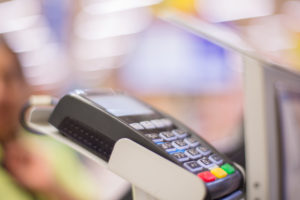Is counterfeit activity on Alibaba.com about to diminish? Alibaba hopes so.
Headquartered in China, and an essential ecommerce cog, Alibaba.com is an online souq of product sourcing, selling, and negotiating.
Recently, Alibaba announced plans to fatten its fraud department.
Alibaba announced plans to fatten its fraud department.
Alibaba’s Piracy Past
In 1999, Jack Ma had his “a-ha” moment: Connect Chinese manufacturers with overseas buyers – online. And abracadabra, Alibaba.com was born. By 2012, financial analysts were valuing the company at about $150 billion.
But everything wasn’t red dragons and lucky koi. Though profitable, Alibaba was also morphing into a piracy bazaar.
The counterfeit crisis reached critical mass in the late noughties when U.S. trade officials granted Alibaba and its eBay-esque component, Taobao Marketplace, a spot on the “Notorious Markets” list.
Legitimizing Alibaba
About ten years ago, Alibaba kicked some pirates off the ship. Officials awarded the company by lifting the blacklist censure.
Now a seasoned, publicly traded Wall Street player, today’s Alibaba is a far cry from its earliest iterations.
Sure, Alibaba’s stock fluctuated in 2015, but pundits aren’t surprised, predicting that Alibaba – like Google, Facebook, Amazon, and eBay – is still a formidable online business force.
Why Are U.S. Officials Once Again On Alibaba’s Case? And, What Is Alibaba Doing About It?
Perhaps at the behest of the MPAA and RIAA, some U.S. lawmakers are apoplectic about piracy. For years, they’ve tried to lard federal law books with draconian, outdated intellectual property statutes. It’s yet to work; but not for lack of effort – nor lobbying dollars.
The Government’s Online Piracy Blacklist
To buoy anti-piracy efforts, in 2006, the Office of the United States Trade Representative (USTR) created an official “naughty pirate” list. Called the Notorious Markets Blacklist, the report adumbrates communities – both online and off – where pirates congregate and flourish; being listed can lead to financial hardship.
The USTR is throwing a skeptical side-eye at Alibaba and threatening to pin a scarlet “P” on the company.
In fact, Alibaba once held a sport on the Notorious Markets Blacklist, but redeemed itself in time for a 2014 IPO. However, the USTR is once again throwing a skeptical side-eye at Alibaba and threatening to pin a scarlet “P” on the company. Presumably in response, Alibaba executives hired 200 new employees to slash and burn Alibaba counterfeit problem accounts.
Got Alibaba Counterfeit Problems? Speak To An e-Commerce Lawyer
Do you need to speak with an e-commerce attorney? The top-rated lawyers at Kelly / Warner have helped hundreds of entrepreneurs overcome legal challenges. We craft fresh solutions to common problems and help keep our clients on top.
Our private label lawyers can answer Alibaba counterfeit questions and help solve issues related to:
- Trademark, patent or copyright;
- Piggybacking or hijacking;
- Account suspensions and reinstatement;
- Forming and e-commerce or Internet business;
- FTC marketing compliance;
- Telemarketing and SPAM restrictions;
- Importing and exporting legalities; or
- Anything that has to do with marketing, selling, or promoting products or services.
We’re a phone call or message away. Hope to talk soon.
Article Sources
Davis, K. (2015, December 29). Alibaba Hires Hundreds To Combat Counterfeit Products In The Face Of Blacklist Threat. Retrieved February 08, 2016, from http://www.fastcompany.com/3055011/fast-feed/in-face-of-blacklist-threat-alibaba-hires-hundreds-to-combat-counterfeit-products R. (2015, December 21). Alibaba names new head of anti-counterfeiting, IP unit. Retrieved February 08, 2016, from http://www.businessinsider.com/r-alibaba-names-new-head-of-anti-counterfeiting-ip-unit-2015-12



Leave a Reply
Your email is safe with us.